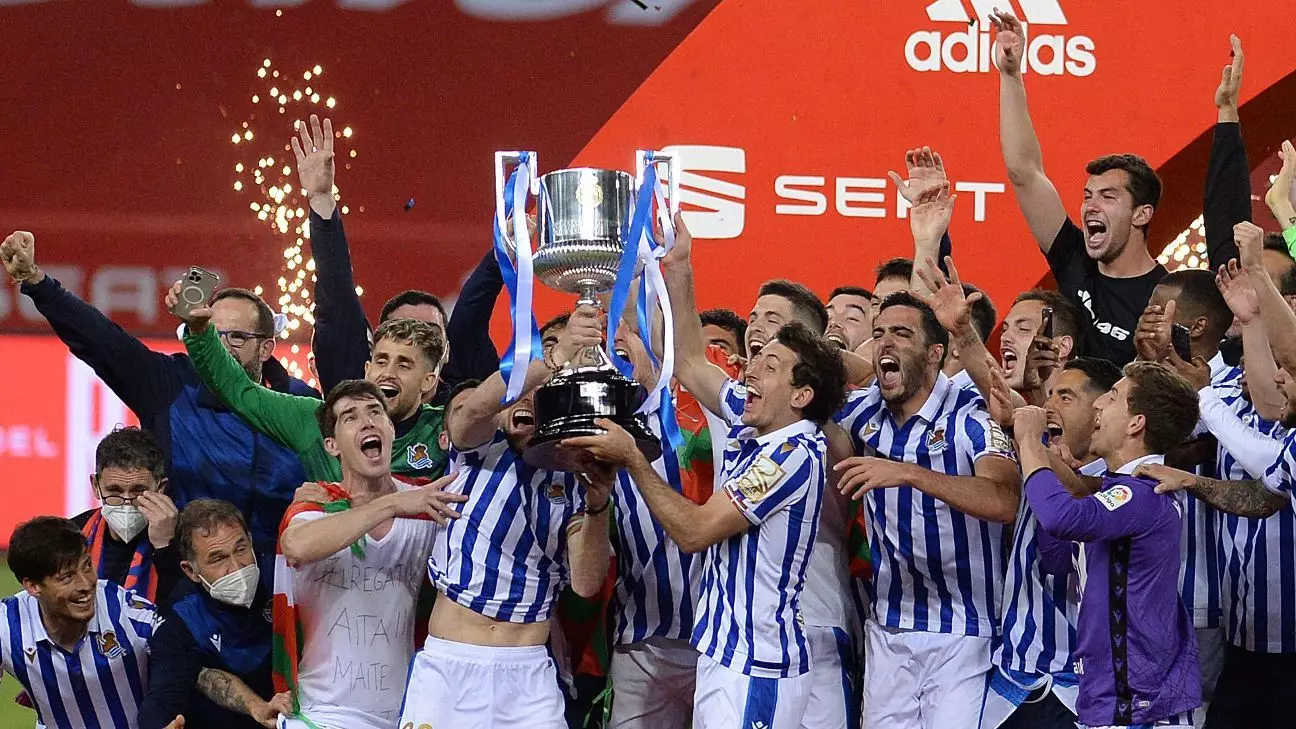Real Sociedad has witnessed significant changes within its organizational structure recently, most notably with the announcement of Roberto Olabe’s impending departure from the club. While Olabe’s current contract guaranteed his position until June 2026, he has chosen to step down a year earlier. His decision marks the conclusion of a pivotal chapter in Real Sociedad’s history, characterized by strategic developments that elevated the club to new heights. As the football community processes this news, the challenge of continuity looms large.
Olabe’s career trajectory at Real Sociedad is remarkable. After transitioning from a player—where he ended his goalkeeping tenure in 1999—he returned to the club in various capacities, ultimately ascending to the role of Director of Football. His tenure is notable for his acute understanding of talent acquisition and development, reinforcing Real Sociedad’s reputation as a nurturing ground for prospective football stars. Signing Alexander Isak for €15 million from Borussia Dortmund in 2019 is perhaps one of his crowning achievements, as it laid the groundwork for a subsequent €70 million sale to Newcastle United in 2022. This transfer exemplified Olabe’s strategic foresight, juxtaposing the club’s fiscal discipline with competitive ambition.
Olabe’s era will also be remembered for other significant acquisitions that have transformed the squad. The signing of Japan’s Takefusa Kubo from Real Madrid epitomizes the director’s ambition to blend youth with experience. Additionally, bringing Mikel Merino from Newcastle United not only showcased his keen eye for talent but also established a framework for future success. These moves have enhanced the club’s competitive edge, sending a clear message regarding their ambitions in both La Liga and European competitions.
Transitioning from Olabe’s stewardship brings anticipation for incoming Football Director Erik Bretos. He faces the daunting task of maintaining the club’s upward trajectory while introducing his strategic vision. It is imperative for Bretos to understand the dynamic environment of transfer dealings and player development to uphold the club’s competitive stature. The imminent changes present both opportunities and challenges, urging the new director to build upon Olabe’s successes while navigating the complexities of modern football.
As Real Sociedad prepares for this leadership transition, the path forward is laden with challenges. The club must efficiently manage the integration of new strategies and philosophies that Bretos will bring. In addition to sustaining player performances and squad cohesiveness, retaining key talents and attracting new players will be paramount. The football ecosystem is increasingly competitive, and as clubs vie for success, Real Sociedad must remain adaptable and resilient.
While the departure of Roberto Olabe heralds the end of an impactful era at Real Sociedad, it simultaneously signals the dawn of a new chapter. The decisions made in the coming months will undoubtedly shape the next phase for the club, influencing not just its immediate performance but also its long-term aspirations on both domestic and continental fronts.

